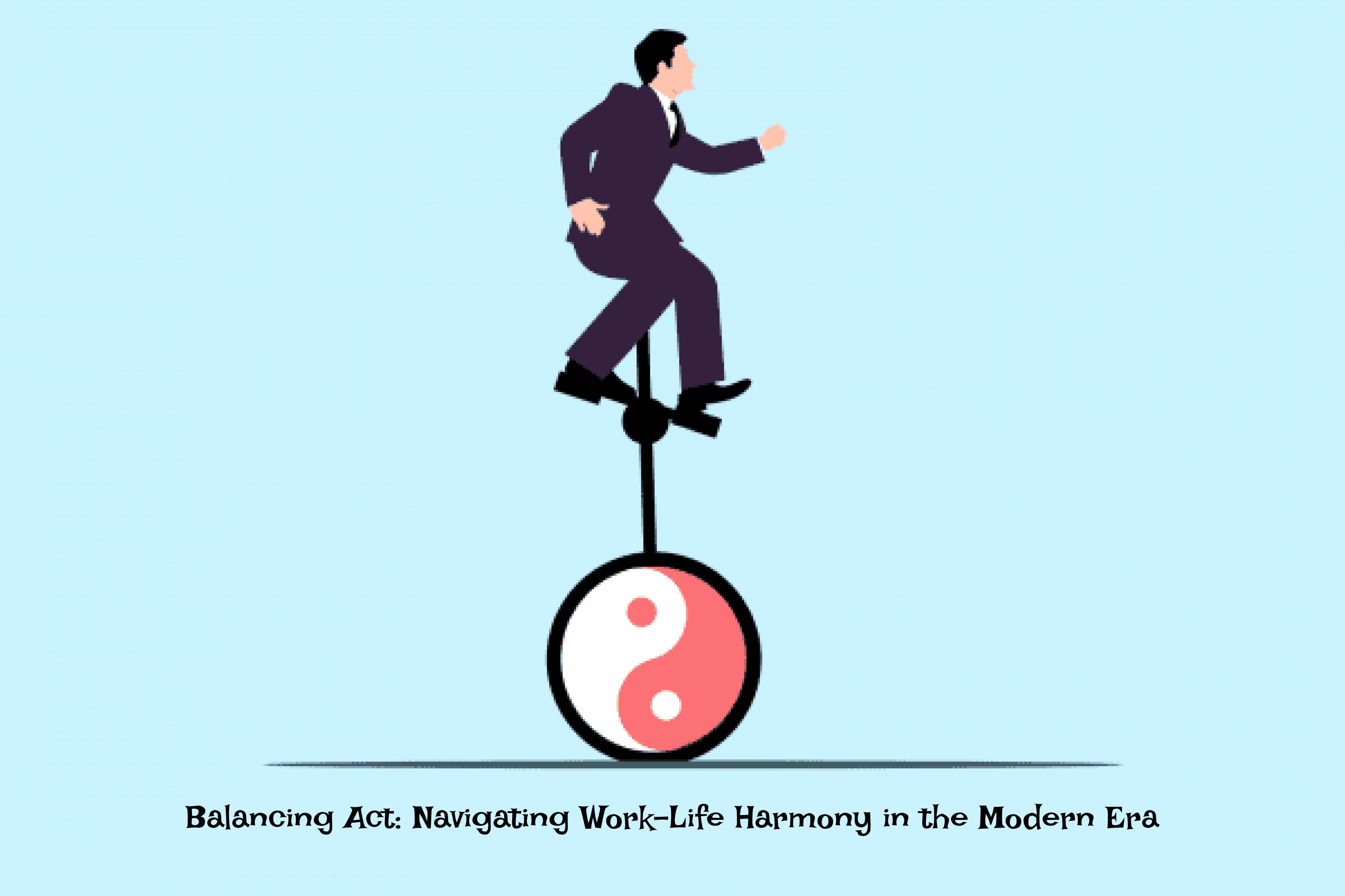Balancing Act: Navigating Work-Life Harmony in the Modern Era

In today's fast-paced world, the concept of work-life balance has become increasingly elusive yet essential. As technological advancements continue to blur the lines between professional and personal life, maintaining equilibrium between work commitments and personal well-being has never been more challenging—or more crucial. Achieving this balance is not just a matter of time management; it's about prioritizing one's physical, mental, and emotional health while also excelling in the professional realm.
Work-life balance is often depicted as a seesaw, with work on one end and personal life on the other. However, this analogy oversimplifies the complexities individuals face in their pursuit of balance. In reality, achieving harmony between work and personal life involves a delicate juggling act, where various factors such as career aspirations, family responsibilities, social connections, and self-care practices must be weighed and managed simultaneously.
One of the primary challenges in maintaining work-life balance is the pervasive culture of busyness and productivity that permeates many workplaces. The pressure to constantly be available, responsive, and productive can lead to burnout and adversely affect one's overall well-being. Moreover, the rise of remote work and digital communication has made it even more difficult to establish clear boundaries between work and personal life, as the office is now accessible at any time from virtually anywhere.
To navigate these challenges effectively, individuals must cultivate self-awareness and set realistic expectations for themselves. This involves recognizing personal limits, establishing boundaries, and learning to prioritize tasks based on their importance and impact. Time management techniques such as setting specific work hours, creating to-do lists, and delegating tasks can help individuals maintain focus and productivity while also carving out time for relaxation and leisure activities.
Communication is another key component of achieving work-life balance, both in the workplace and at home. Open and honest communication with supervisors, colleagues, and family members can help clarify expectations, negotiate flexible work arrangements, and prevent misunderstandings that can lead to stress and conflict. By expressing their needs and concerns assertively, individuals can create a supportive environment that fosters mutual respect and understanding.
In addition to effective time management and communication skills, self-care practices play a crucial role in maintaining work-life balance. Engaging in activities that promote physical health, such as regular exercise, nutritious eating, and sufficient sleep, is essential for sustaining energy levels and managing stress. Likewise, prioritizing activities that nurture mental and emotional well-being, such as meditation, mindfulness, and hobbies, can help individuals recharge and cultivate resilience in the face of adversity.
Ultimately, achieving work-life balance is a dynamic and ongoing process that requires continuous effort and adaptation. It's not about striving for perfection or achieving an exact equilibrium between work and personal life but rather about finding a rhythm that allows individuals to thrive in both domains. By prioritizing self-care, setting boundaries, and fostering open communication, individuals can create a sustainable lifestyle that promotes both professional success and personal fulfillment. In doing so, they can navigate the complexities of the modern world with grace and resilience, ensuring that work and life complement rather than compete with each other.
Like this project
Posted May 3, 2024
In today's fast-paced world, the concept of work-life balance has become increasingly elusive yet essential. As technological advancements continue to blur the
Likes
0
Views
16
Clients


Komunite

Community






